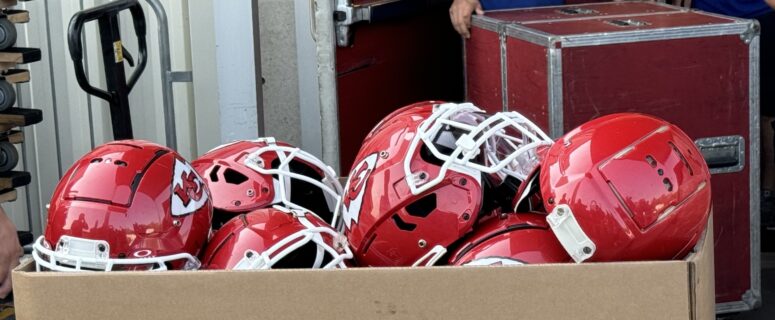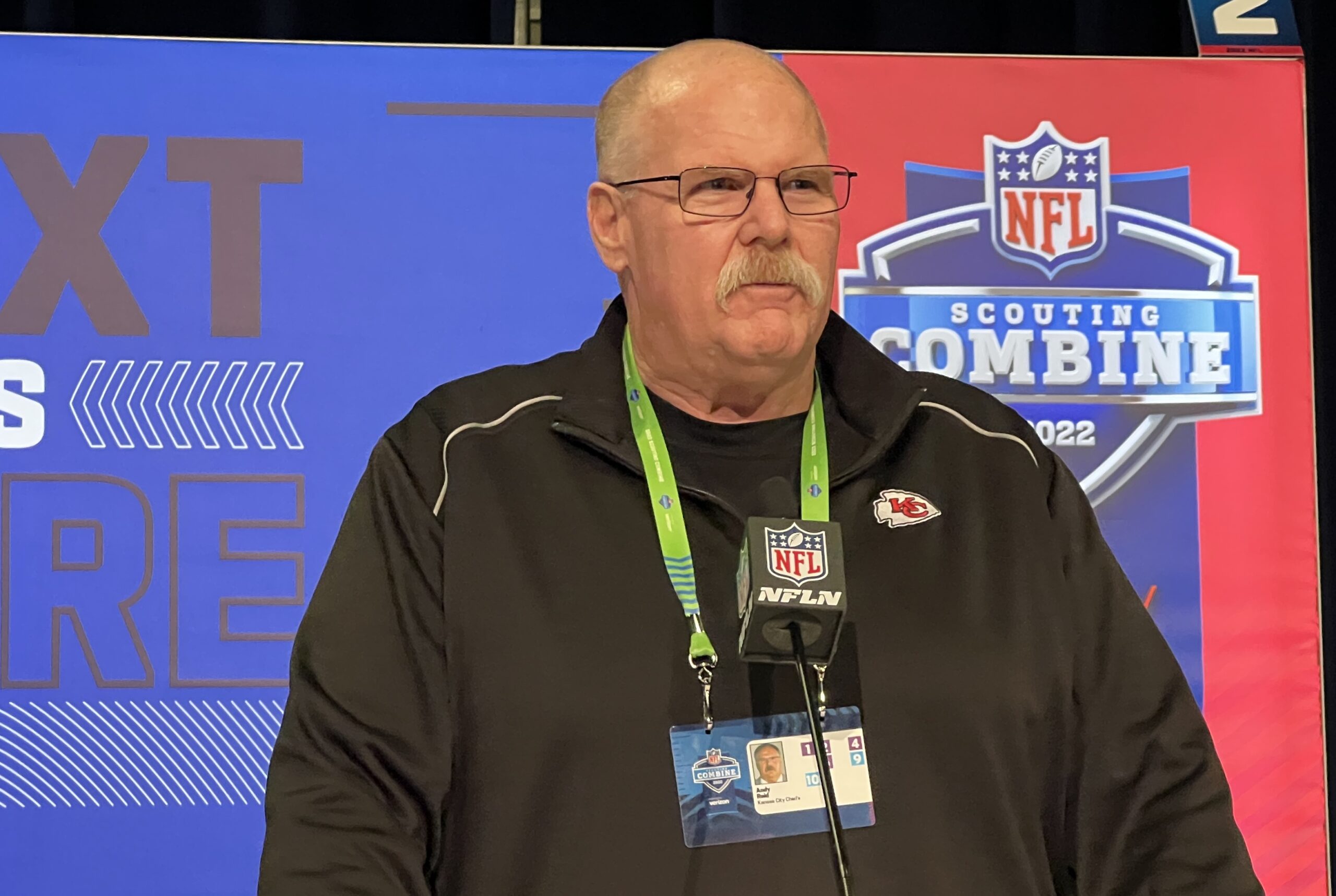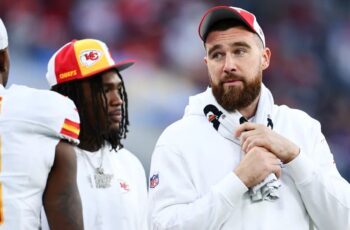KANSAS CITY, Mo. — At age 18, Allen Wright worked his first training camp for the Chiefs and helped pack two 53-foot trailers for the road trip to the William Jewell College campus in Liberty in July 1983.
For his 41st road trip to training camp, the team’s longtime equipment director oversaw loading an 11-truck convoy for the journey to Missouri Western State University in St. Joseph with everything an NFL team needs for a month away from home.
“Back then we didn’t have cell phones or computers, and we take a whole truck full of IT stuff (now),” Wright said Wednesday. “And the program’s grown. In 1989, we had 11 coaches including the head coach, and I think this year, we have 24. With all of those comes another set of everything — rain suit, shoes, underwear, socks.
“Take my group, there was only two of us. There’s seven of us (now) and we bring 10 (interns). The whole program has gotten extremely big.”
The first truck loaded on Wednesday morning carried an array of supplies, including two pallet-size container boxes each of Nike shoes and football helmets. Another shipping container bin featured hundreds of helmet chin straps resting on top other items. One heavy-duty shipping cabinet, painted red featuring an old school Chiefs helmet logo with the stenciled words “Equipment Dept.,” noted its destination as the coaches’ room and identified as belonging to head coach Andy Reid.
Technology has also significantly changed the role of the equipment manager over the decades, and the evolution has been more rapid in recent years. Whether it’s the addition of the soft-shell Guardian Caps players wear during practice — and may now don during games this season — or tracking chips used to measure the performance of players and their protective gear, there are infinitely more items in inventory for training camp than ever.
“Football’s in a wonderful place right now from a health and safety standpoint,” he explained. “We’re doing a lot of scanning. We scan every pair of shoes that every player wears, through every practice, every walkthrough. All that data goes back to a place that the NFL has, and also helmets, shoulder pads, braces, and so all those things are creating a good database that’s helping the NFL be as safe as possible.”
During the temporary relocation of the Chiefs’ organization to St. John, Wright and his equipment staff — assistant equipment managers Chris Shropshire, Cale Kirby, Jay White and Holt McKenney and equipment assistants Niko Barber and Logan Love — must pack the club for an excursion to Jacksonville on Aug. 10 to face the Jaguars before returning to St. Joseph for the final four days of camp.
“It’s the hardest (road trip) of the year for us honestly,” Wright said of the trip which requires equipping as many as 91 players to participate in the game compared to just 48 during the regular season. “It’s just one of those things that it makes you pay attention a little more, cross your T’s and dot your I’s and not making a mistake.”
Moving day for training camp also serves as a pivot point for the 41-year veteran equipment manager. When asked if it’s one of the best days or least favorable moments on the NFL calendar, Wright says that’s a 50/50 proposition.
“One side of me is excited, obviously, to get to training camp and get going,” Wright explained. “The sooner we get going, the sooner we get to the season. Another side of me is a little sad that we’re shutting the book on last season, opening the book for this season. We’ve enjoyed our offseason a little bit. It’s hard not to.”
But even with the bittersweet memories of transitioning from a championship campaign to a new season of possibilities, Wright doesn’t tire of the grind.
“(I’ve) waited my whole life to be this good, so no, it never gets old.”



